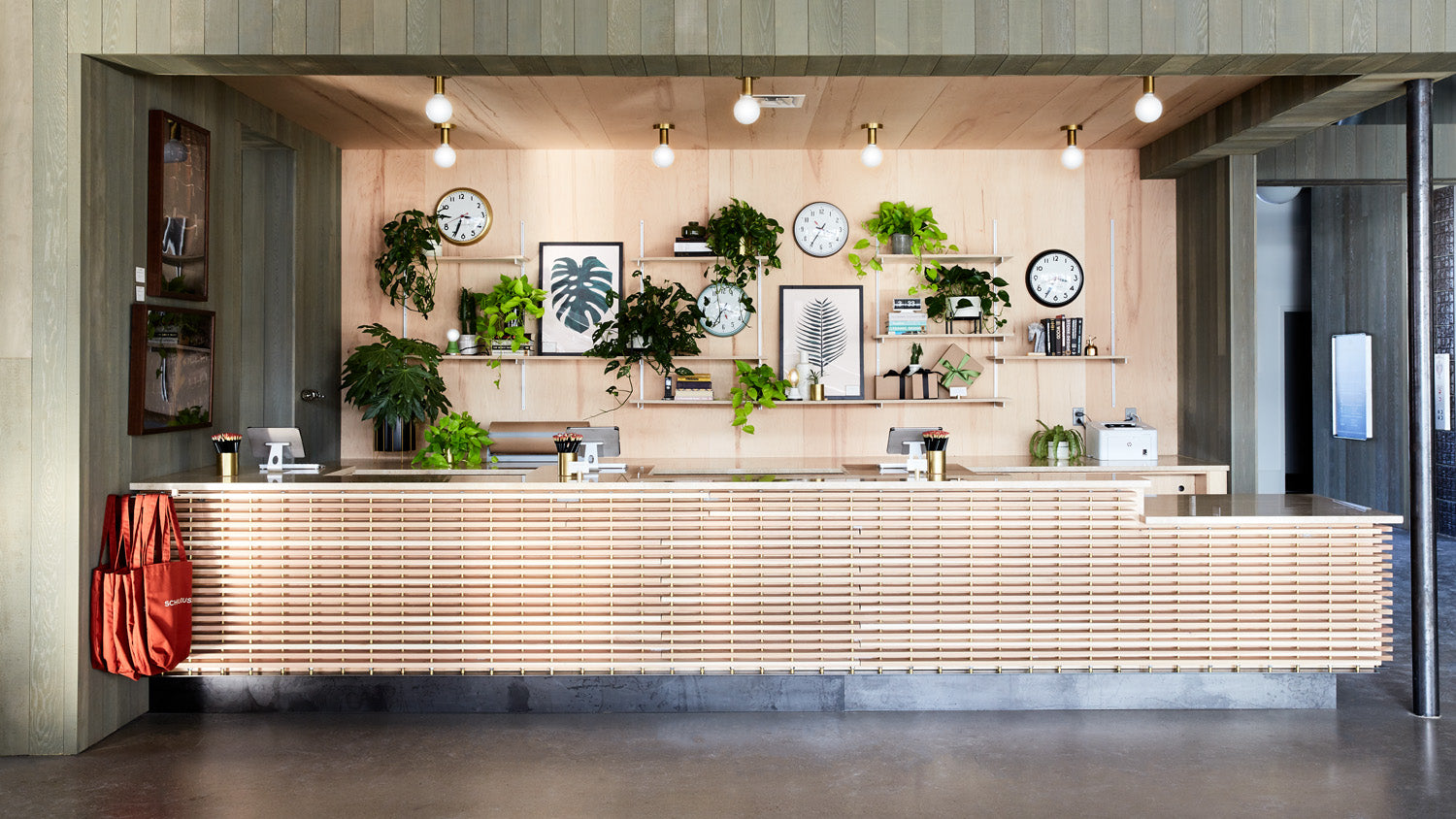Go Inside: Schoolhouse Pittsburgh in The Detective Building

Although Schoolhouse is proudly headquartered in Portland, Oregon, our company exists in an industrial tradition and design philosophy that isn’t just bound to the Pacific Northwest. The maker spirit which still informs all of our product lines has historically enjoyed a robust presence throughout the middle of the country and specifically in the Rust Belt. Think of the gorgeous lines of a Packard touring car from Detroit, or the revolutionary architecture of Frank Lloyd Wright’s Oak Park, Illinois houses. So when the opportunity arose to open a store in Pittsburgh, Pennsylvania, the move felt almost predestined.
When it opened in the fall of 2018, Schoolhouse Pittsburgh became the first new Schoolhouse store in nearly a decade. There’s a reason why that is the case: opening a new store is a big undertaking that we take seriously, and accomplishing something truly great takes time.


In this case, that meant spending three years designing a product line that referenced the city’s culture, seeking out and partnering with locals, and most importantly, renovating The Detective Building.
Moving to a new city required having local partners that could make the right introductions and share the local culture. Fortunately, we were able to partner with some very special people. Day to day operations of Schoolhouse Pittsburgh are managed by Chrissy Norman, a Pittsburgh native and designer with an eye for the art of interior styling. Sharing the ground floor of the building is The Bureau, a coffee shop from local restaurateurs Joey Hilty and Emily Slagel. The floors above are occupied by The Beauty Shoppe, a company that operates coworking spaces all around Pittsburgh and the Rust Belt. Local cabinet makers Bones and All provided some of the custom furniture used in Schoolhouse Pittsburgh, while Pittsburgh-based Moss Architects supervised the renovation.


For Schoolhouse Founder and CEO Brian Faherty, the Detective Building renovation provided the impetus for setting up shop in Pittsburgh.
“The store in Pittsburgh probably wouldn’t exist today if I hadn’t stumbled across the Detective Building,” says Brian. “As much as I have always liked Pittsburgh, what really hooked me to the city was the undeniable urge to bring the Detective Building back to life.”
The Detective Building is so called because it once served as the home of the Pittsburgh Police Department Detective Bureau. The building is located in East Liberty, a neighborhood known for its vibrant cultural heritage. This is the same part of town where international companies like The Ace Hotel and Google chose to plant their roots. Built in a short-lived but vibrant architectural style known as New Formalism, The Detective Building has a striking cuboid silhouette constructed from cast concrete arches, hardwood siding, and glass. Closely related to the contemporaneous movement known as Brutalism, New Formalism was commonly used in the construction of civic buildings, banks, and offices. The latter usage is what stirred Brian’s memory.



“In the 1970s, my dad worked in this modern, cool office in downtown Portland,” says Brian. “I guess in a certain way, seeing the Detective Building reminded me of that, and I knew I had to give this building a second life.”
As much as possible, the space was influenced by the city of Pittsburgh, and only a few of the influences in the store’s design come from elsewhere. Highlighting the local culture was such an important part of the project that the Schoolhouse product design team even developed a collection of products that celebrate Pittsburgh artists, makers, and cultural figures. The Andy Collection, named after Pittsburgh native Andy Warhol, features tables and stools designed around a cast aluminum tulip base. The Rogers Ottoman is upholstered in rich, woven fabrics reminiscent of the sweaters worn by its namesake, Fred Rogers. Celebrating the local colors, the Stiller Plaid Pillow is based on a warm yellow and black plaid.



When products or decor were brought in from outside, usually it was done so intentionally with the purpose of bridging the gap between the Pacific Northwest and the Rust Belt. For example, a large installation of hand-carved Leroy Setziol wood panels exude the richness and warmth of Oregon timber to compliment the Steel City’s industrial cool.


Opening the Detective Building Store took several years to complete. From the long days and late nights of planning, to the numerous cross-country flights, to the tireless search to find local partners and makers to source from, the process was demanding for many of us who were involved. But we think the store was worth the wait and we think you will, too.










